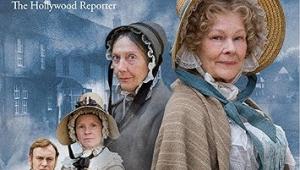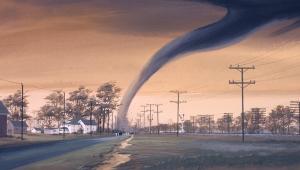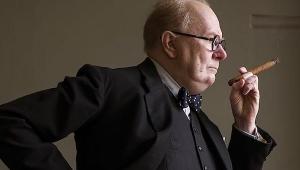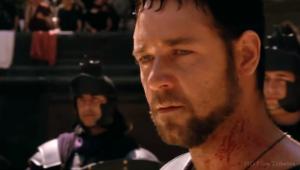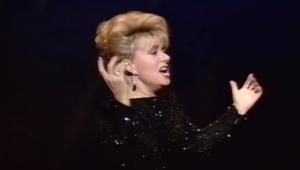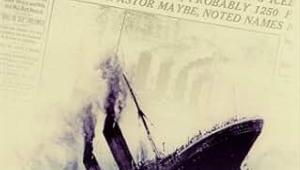It can be a wise move to get an essay online if you're having trouble finishing your project in time or just lack the writing talents necessary to produce a high-quality essay. In this post, we'll look at the advantages of ordering help with nursing essays and how to make sure you're receiving the best possible service.
Rediscovering Movie Critic Richard Schickel's 'Keepers'

My book collection isn't large by the standards of the Blu-rays stuffing the shelves. I recently donated a few dozen of the latter, together with more than a few books, to my local library. I had tried to donate a couple of years ago, but it was then prime Covid-time. While the library was open for normal foot traffic, they weren't accepting any donations, fearing Covid coot contagion.
In any case one of the as yet unread books I brought along on the trip was Keepers, sub titled "The Greatest Films, and Personal Favorites, of a Moviegoing Lifetime by Richard Schickel. Schickel was one of the most prolific writers on film, both in reviews and in the 24 books he wrote from 1965 to his passing in 2017. He also helmed film documentaries, and his commentaries can be heard on a wide range of DVDs.
Keepers is Schickel's last book, and its Amazon reviews are mixed to say the least. Those expecting in-depth reviews of specific films in the Leonard Maltin style were likely disappointed. The book only occasionally dwells for long on a specific movie, but rather wanders around in chapters that don't always agree with the chapters' title.
I haven't yet had the time to read the book from beginning to end, but it invites jumping to and from its extensive index, particularly when reading about one film brings thoughts of another. The titles that then came to mind for me weren't always in the index; how could they all be given the vast history of film. There's no Lawrence of Arabia or Ben-Hur here, for example. While it's inconceivable that Schickel didn't see either of those films, his emphasis here appears to be on older films and titles that, with some exceptions, aren't the sort of blockbusters widely known to today's audiences.
Nevertheless, Steven Spielberg gets a whole chapter, as does Clint Eastwood. Schickel clearly admires their work and has written entire books about both of them.
Stanley Kubrick has a chapter as well, and George Lucas' Star Wars gets praise: "John Williams music kicks in brilliantly right from the get-go. The dialogue is first-class in the wise-guy vein. The villain is first-rate...[and] your first sight of a Wookie is not easily forgotten."
Schickel has met more than his share of Hollywood elite, and frequently drops names in a way that in the wrong hands can be off-putting. But he's never self-important when he does so; often it's in relation to a telling anecdote. He offers generous praise for his acquaintances, particularly for Lucas with whom he worked on a number of documentaries, including those for the early Star Wars films.
While many of Schickel's references to a specific film or person are brief, he devotes over three pages in the "Why We Fight" chapter to James Cagney. During WWII something like 90 million Americans went to the movies each week out of a population at the time of roughly 135 million. They likely went as a matter of habit and as something to do after a long work week and often depressing war news. Movie tickets were cheap by today's standards (about 25 cents or a bit over $3.00 today accounting for inflation—a salary of $2,500 then would be about $45,000 today). There was no television, and radio offered a different and less immersive form of entertainment.
It's from that era that Schickel describes one of his seminal childhood movie experiences. "One Saturday night in 1942, there was an uncommon stir at 1721 North Sixty-Eighth Street. We were going to the movies as a family. That didn't happen very often. This night, we were all going to see the early show of Yankee Doodle Dandy. [It was] a biopic about George M. Cohan, an apparently legendary song-and-dance man much beloved by older folks, though unknown to me, except by way of the publicity for this movie. But it was a movie, and besides, there was talk of ice cream sodas afterwards...So off we went, toward transformation in my case."
In that film's finale, "Cagney taps his way down a preposterously long White House staircase and emerges into a parade of soldiers who happen to be marching past the White House and happen to be singing "Over There." He joins that rousing chorus as the movie ends."
There is perhaps no better example of Schickel's love of film than in his next to last chapter. "I am going to resist naming a "best" movie in this book. I am going to end instead by proposing films of indisputable quality, beginning with Ingmar Bergman's Fanny and Alexander (1982)...I've liked Fanny for the surprises it has brought me, if nothing else. And the reminder for me, as a critic, that the movies are a more joyous enterprise than we think they are as we go about our dour critical rounds. Yes, Ingrid, they are "only" movies—that is to say, nothing—but sometimes they are everything."
- Log in or register to post comments


What's up, this is a brilliant article. kevin costner yellowstone s03 brown vest I seriously enjoyed reading. Nevertheless, there are plenty of off-topic comments. I seriously suggest you get rid of it or something like that. That is only my opinion. All the best!

Schickel clearly admires their work and has written entire books about both of them.
tiny fishing

GHP Certification in Dubai(Good Hygiene Practices) is a standard that ensures businesses, especially in the food industry, adhere to stringent hygiene and sanitation practices. This certification demonstrates compliance with local and international health regulations, promoting consumer safety and trust. It helps organizations implement effective hygiene controls throughout their operations to prevent contamination and ensure the delivery of safe products to the market.

ISO 42001 Certification in Dubai focuses on the implementation of environmental management systems within organizations, aiming to enhance sustainability practices. This certification helps businesses reduce their environmental impact, optimize resource usage, and comply with regulatory requirements, while improving their overall environmental performance.

The Adobe AD0-E330 certification exam is designed for professionals who want to demonstrate their expertise in Adobe Campaign Classic as a Business Practitioner. Passing this exam showcases your ability to manage, execute, and optimize campaigns efficiently. In this guide, we’ll provide an overview of the exam, sample questions, and key preparation tips to help you succeed. Exclusive Deal: Get Up to 65% Off! >>>>> https://www.certsout.com/AD0-E330-test.html
